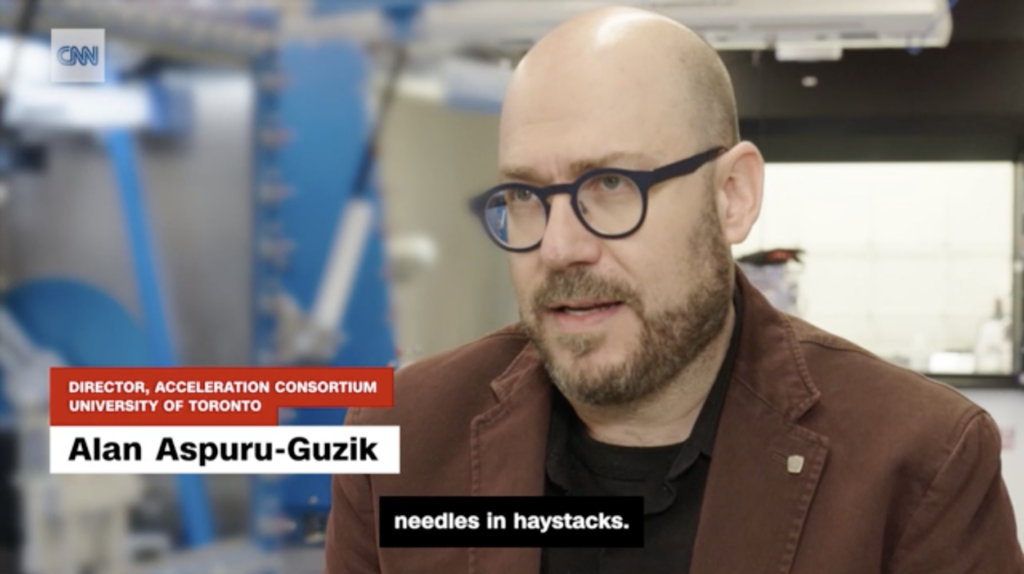Alán Aspuru-Guzik

AI and quantum computing used to target 'undruggable' cancer protein
Research co-led by University of Toronto researchers and Insilico Medicine has demonstrated the potential of quantum computing and artificial intelligence to transform the drug discovery pipeline. In the study published in Nature Biotechnology, the researchers combined quantum computing and generative AI with classical computing methods to create molecules targeting a cancer-driving protein called KRAS, which had previously been considered […]
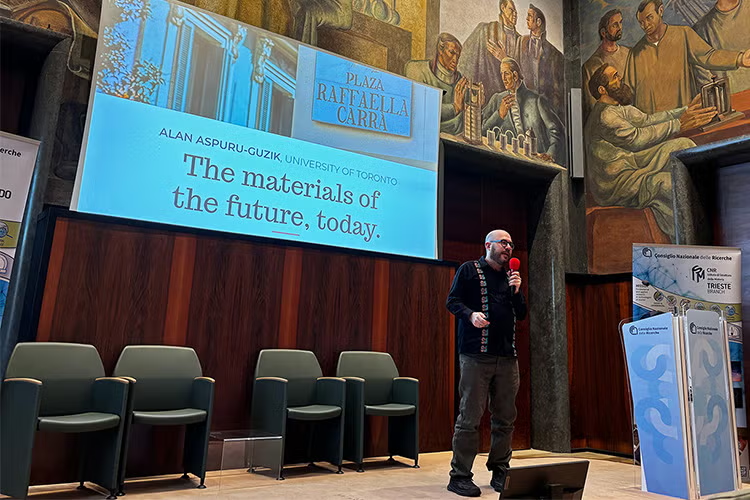
Alán Aspuru-Guzik recognized by Italy's national research council
Alán Aspuru-Guzik, the director of the Acceleration Consortium, has been recognized with a 2024 Istituto di Struttura della Materia Prize (PRISM) awarded by Italy's national research council, the Consiglio Nazionale della Richerche (CNR).

U of T breaks ground on a new home for the Acceleration Consortium
The university recently held a groundbreaking ceremony to mark the expansion of the Lash Miller building on the St. George campus – a place that will serve as the new home of the Acceleration Consortium while providing improved facilities for the department of chemistry.
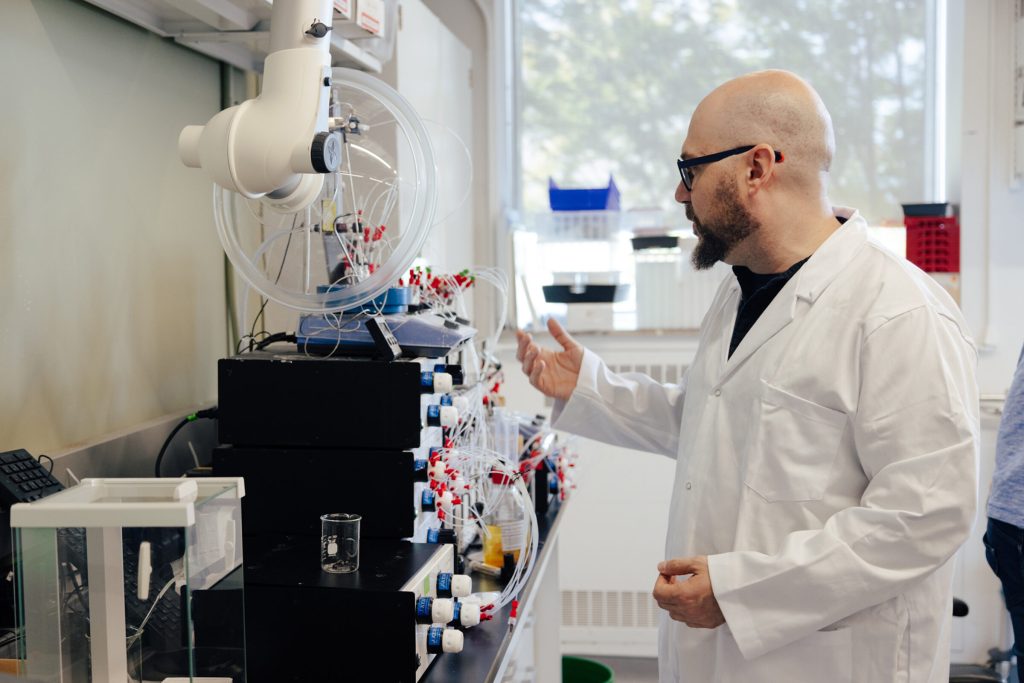
The Lab That (Almost) Runs Itself
Robots and AI are changing how we do science, making it faster, cheaper and more productive. By Scott Anderson for U of T Magazine
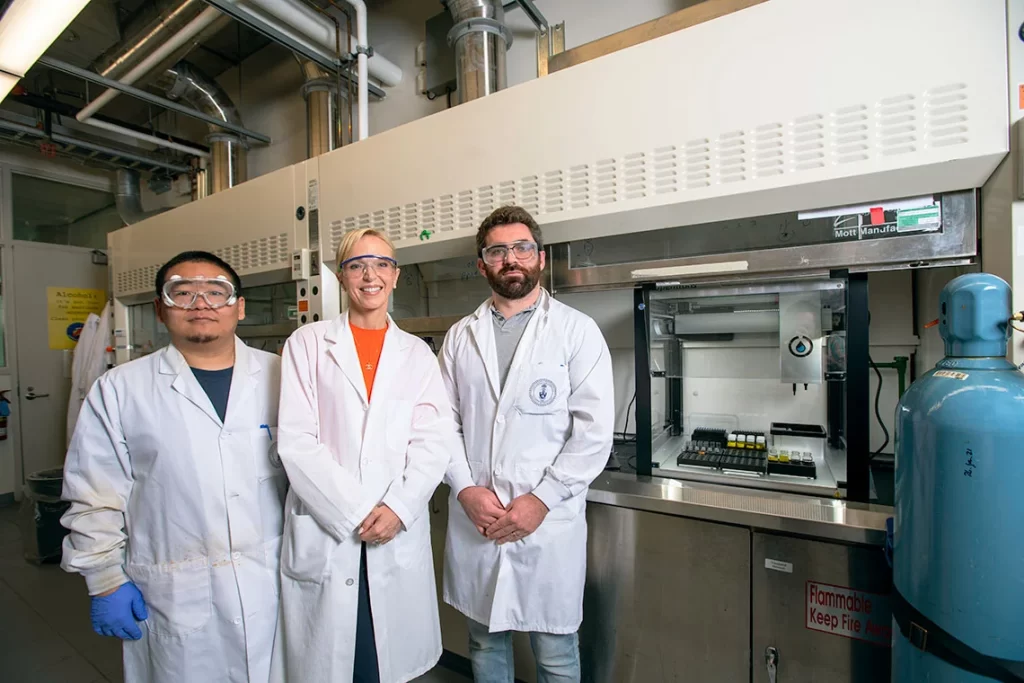
New autonomous lab at University of Toronto to improve drug formulation
A new autonomous lab being built in the University of Toronto's Leslie Dan Faculty of Pharmacy will help to design and optimize formulations that will improve bioavailability, stability and efficacy of a variety of drugs.
Christine Allen, a professor in the faculty whose research focuses on drug development and disease diagnostics, is co-leading the lab with Frank Gu, a professor in the department of chemical engineering and applied chemistry in the Faculty of Applied Science & Engineering.
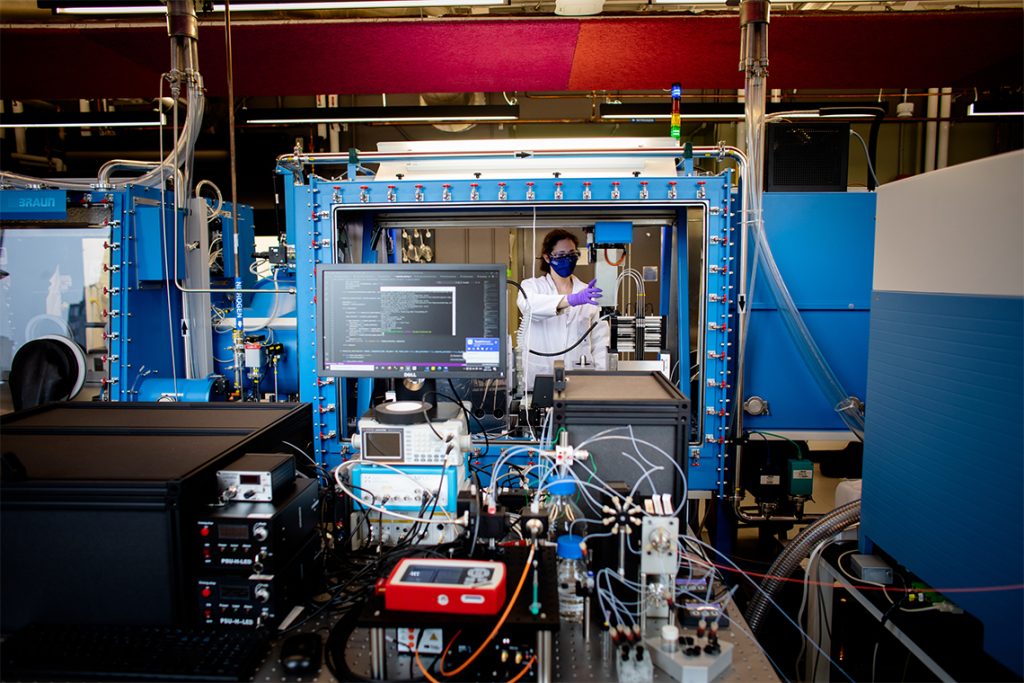
U of T receives $200-million grant to support Acceleration Consortium's ‘self-driving labs’ research
The University of Toronto has been awarded a $200-million grant from the Canada First Research Excellence Fund (CFREF) to revolutionize the speed and impact of scientific discovery through its Acceleration Consortium. The funding – the largest federal research grant ever awarded to a Canadian university – will support the consortium’s work on “self-driving labs” that combine artificial intelligence, robotics and advanced computing to discover new materials and molecules in a fraction of the usual time and cost.
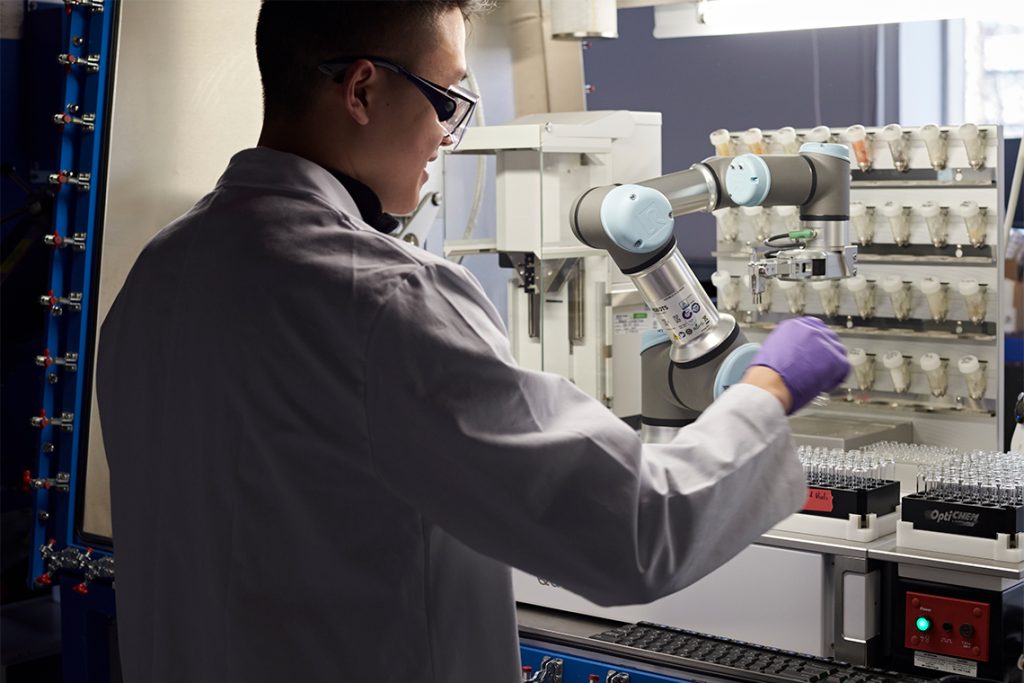
Experts say $200-million grant awarded to U of T will drive ‘big science’ via the Acceleration Consortium
The Acceleration Consortium will use the funding to commercialize ethically designed technologies and materials to benefit society and train today’s scientists with the skills they need to advance the emerging field of accelerated materials discovery. It will also examine critical issues regarding the application of the technology, including from environmental and Indigenous perspectives.

AI could develop cancer treatments in less than a month
In less than a month, researchers from University of Toronto’s Acceleration Consortium, in partnership with Insilico Medicine, have designed a potential treatment for hepatocellular carcinoma (HCC), an aggressive and common form of liver cancer that claims approximately 700,000 lives each year. The study is the first to use AlphaFold — an AI-powered protein structure database — in an end-to-end AI drug discovery platform called Pharma.AI.
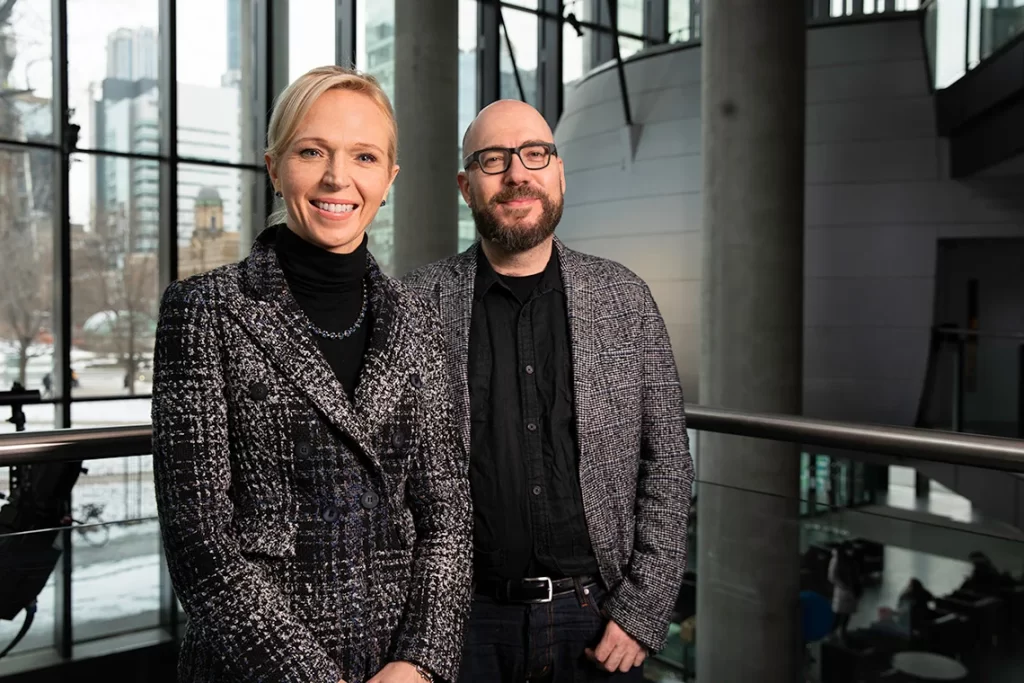
U of T scientists use AI to fast-track drug formulation development
In a bid to reduce the time and cost associated with developing promising new medicines, U of T scientists have successfully tested the use of artificial intelligence to guide the design of long-acting injectable drug formulations. The study was led by Profs. Christine Allen and Alán Aspuru-Guzik.

